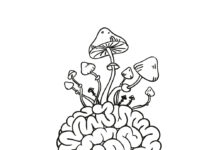While harmful physical effects of the use of antipsychotics are often discussed, one crucial adverse effect is often left out: their impact on identity.
A new article by Maev Connely from the University College London in the Division of Psychiatry and colleagues argues for increased understanding and discussions of antipsychotics (APs) impact on identity and sense of self.
The study was published in the Community Mental Health Journal. The authors write:
“Fostering inter- and intra-disciplinary discussion, and cross-disciplinary buy-in to aggregate knowledge from across the spectrum of care, about how taking APs impacts identity, will widen the scope of what can be achieved in clinical practice. We believe this will result in better alignment with the ideals of the recovery approach to care which aims to support clients to learn to live well, where what constitutes living well is defined by the individual rather than decided for them by their clinical team.”
















I would like to edit my comment.
Report comment
Posting as moderator:
There’s no function to edit approved posts. The only solution I can propose is to submit your new post as a new post.
Hope that helps!
Report comment
I am glad that you wrote this article. I have so much I could say of how both my daughters, but especially the youngest, suffered the destruction of their identities and were made alien to themselves and to many who once celebrated life with them. It’s a deep dive to bring forth a tome worthy to describe the injustice against them.
Whatever the intentions, the ongoing research keeps the destructive experimentation going on and on. You can ask to receive a list of all the parties who received your loved one’s hospital records. In response, you will receive a list of parties who will NOT be divulged to you such as research interests, private investigations, etc. Your loved one’s clinical records can be scrubbed of personal identifiers and sent to research parties.
Ask questions when the pediatric attending physician tells you that he usually ONLY prescribes risperidol to his patients with First Episode Psychosis. That is risky Trial and Error for many reasons I won’t go into now. Is research the reason for that?
Enough young people have been “drug wrecked” , a term Dr. Healy uses. The profession fails to mandate proper recording of drug effects; the effects are incriminating. The profession is not designed to serve your loved one’s best interests. Enough lives have been destroyed. Stop subjecting young people to the toxic paradigm.
Report comment
Whoops, I made a significant error: Paragraph Two-Line Two should read “…usually uses risperidol with his patients….”
Report comment
“Shared decision making” in ‘mental health’ is a joke.
It might sound good, but the fact is most people in professional roles aren’t willing to share their power as this is what defines them. And this is especially true when it comes to ‘antipsychotics’, or any other psychiatric ‘medication’ because most clinicians are trained to believe that psychiatric patients don’t know their own mind (‘lack insight’, ‘anosognosia’). Which is the reason why most clinicians subtly pressure (or even coerce) patients into complying with whatever makes the clinician feel safe.
A client’s sense of self usually fares no better because this too is under the influence of the harmful dynamics present in most psychotherapeutic relationships, dynamics characterized by a ‘power imbalance’ that (insidiously) undermines clients’ faith in themselves.
So, in effect, nothing really changes.
Report comment
The fact that sharing decision making is even a point of discussion says a lot. Why would you NOT share decisions with the person making them?
Report comment
Indeed. It’s lip service, a way of appeasing patients in order to make a prescriber’s life easier, a clever way of trying to sound progressive in order to salvage their tarnished reputations. And the craziest thing about it is that doctors are specifically trained to skillfully persuade people to ‘take their medicine’. The whole idea is ridiculously performative because the last thing an MD is concerned with is the patient’s sense of self; what they’re most concerned with is following is standard protocols to avoid malpractice suits.
Report comment
“Shared Decision Making.” A catchy term for a stupid idea.
Report comment
great sir beneficial article thanks for sharing.
Report comment
The graphic for this article was very well chosen because unfortunately many people who ingest antipsychotics become shadows of themselves.
Report comment